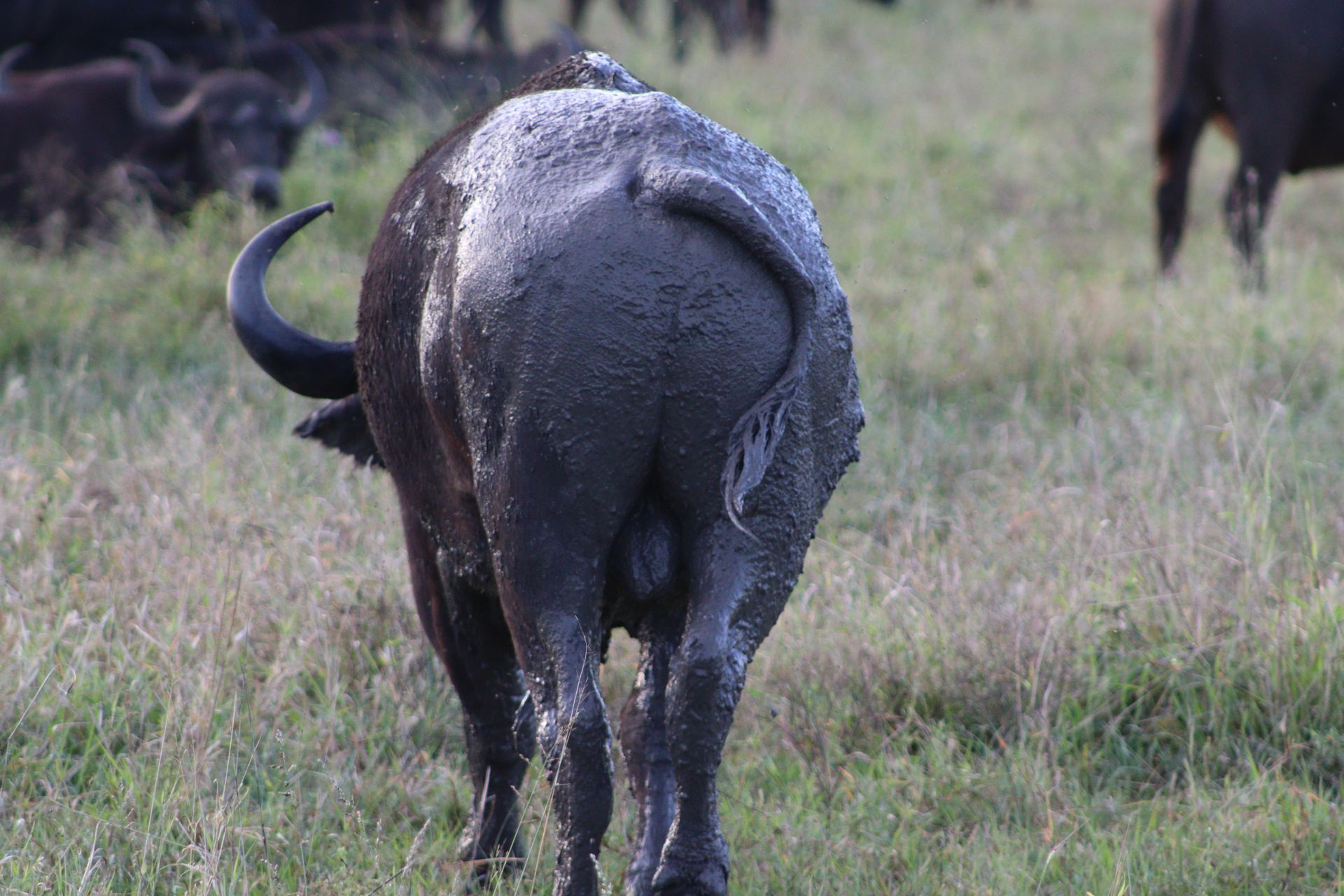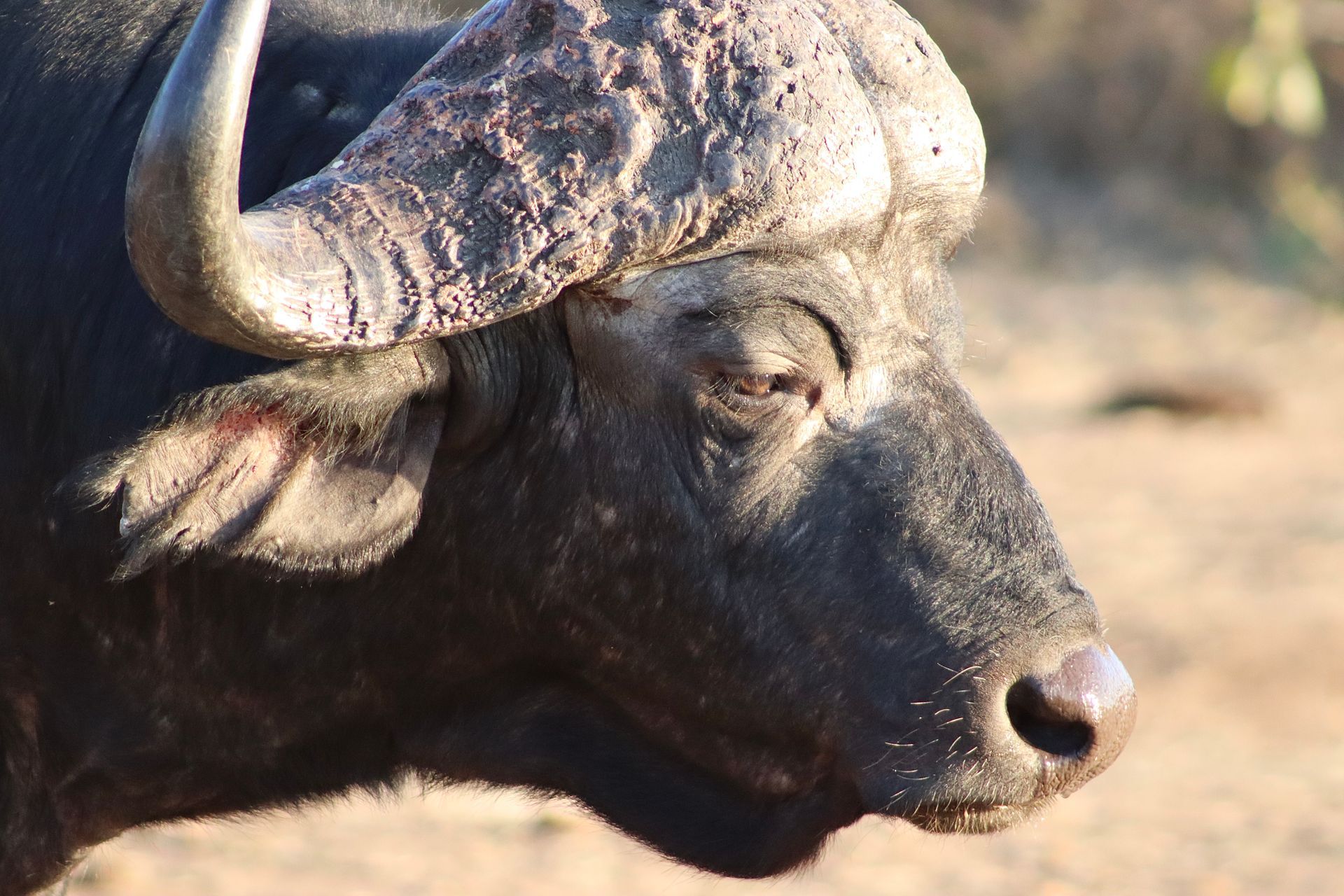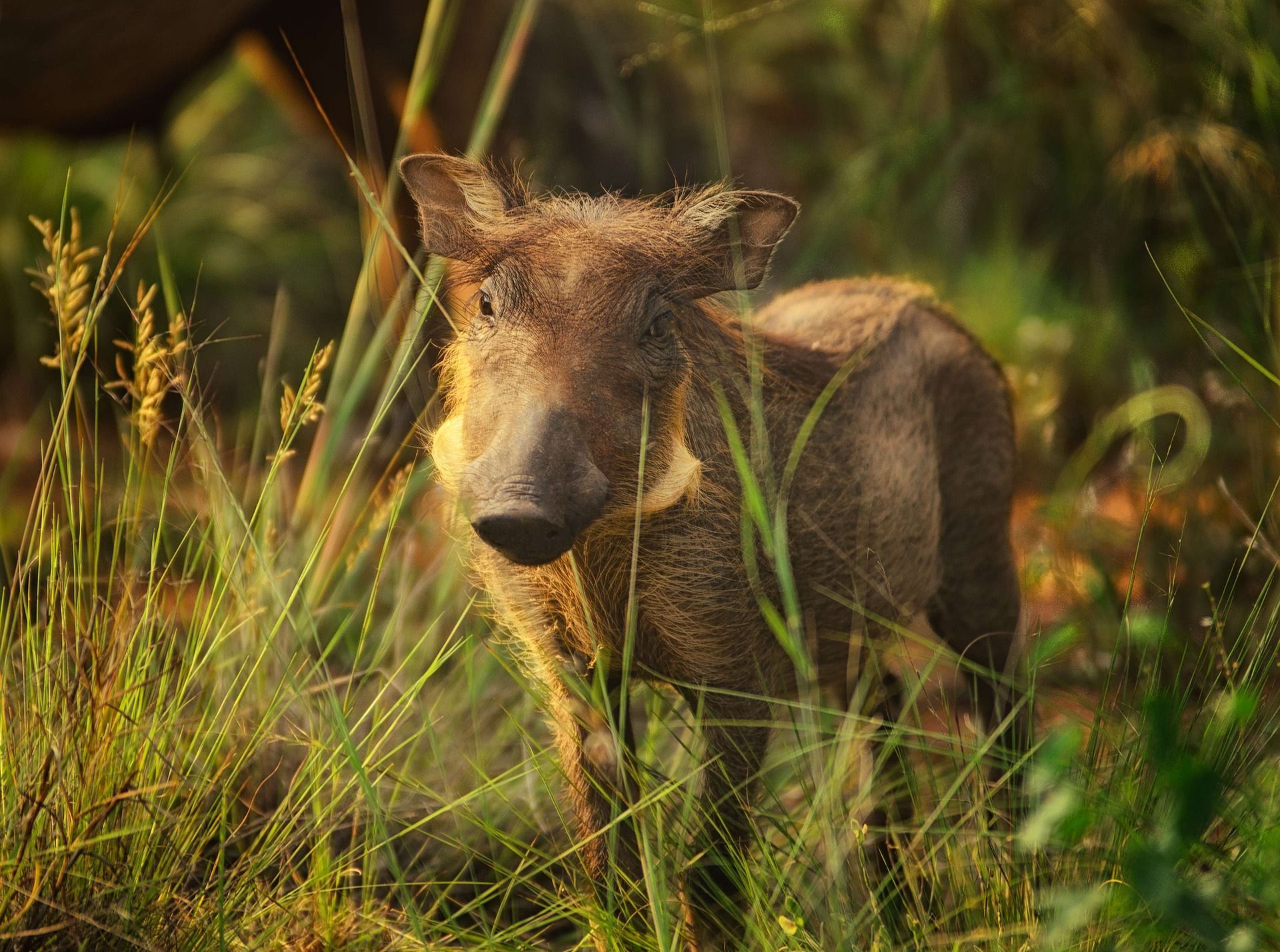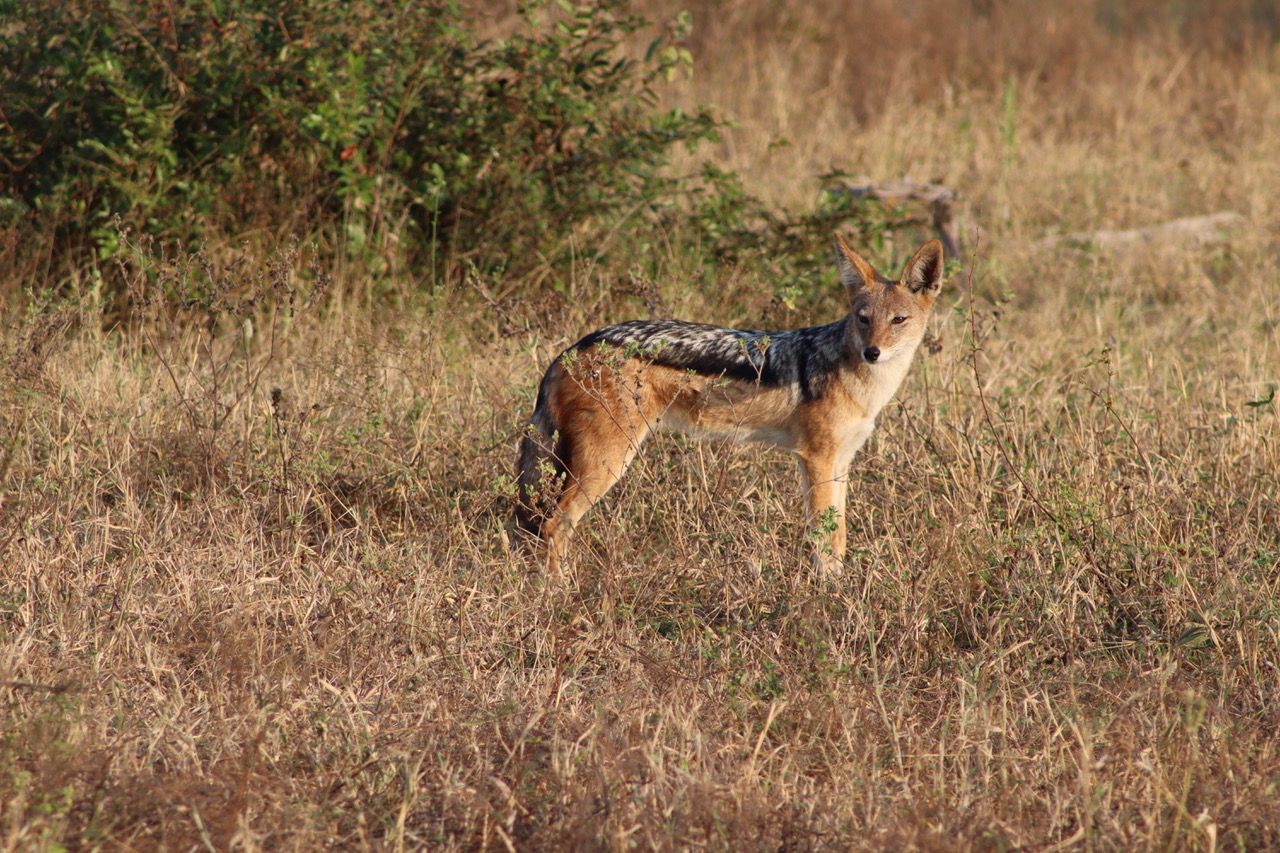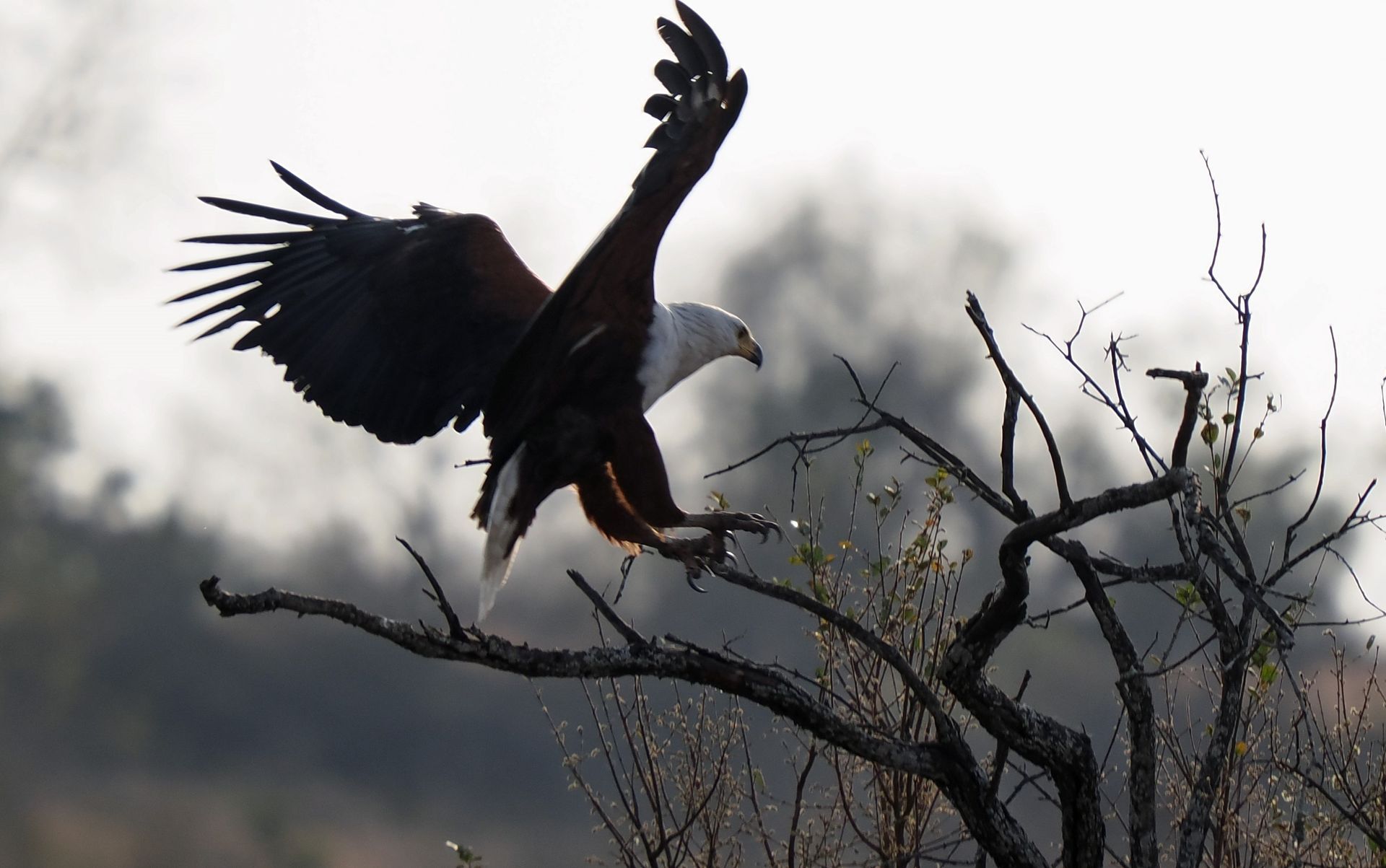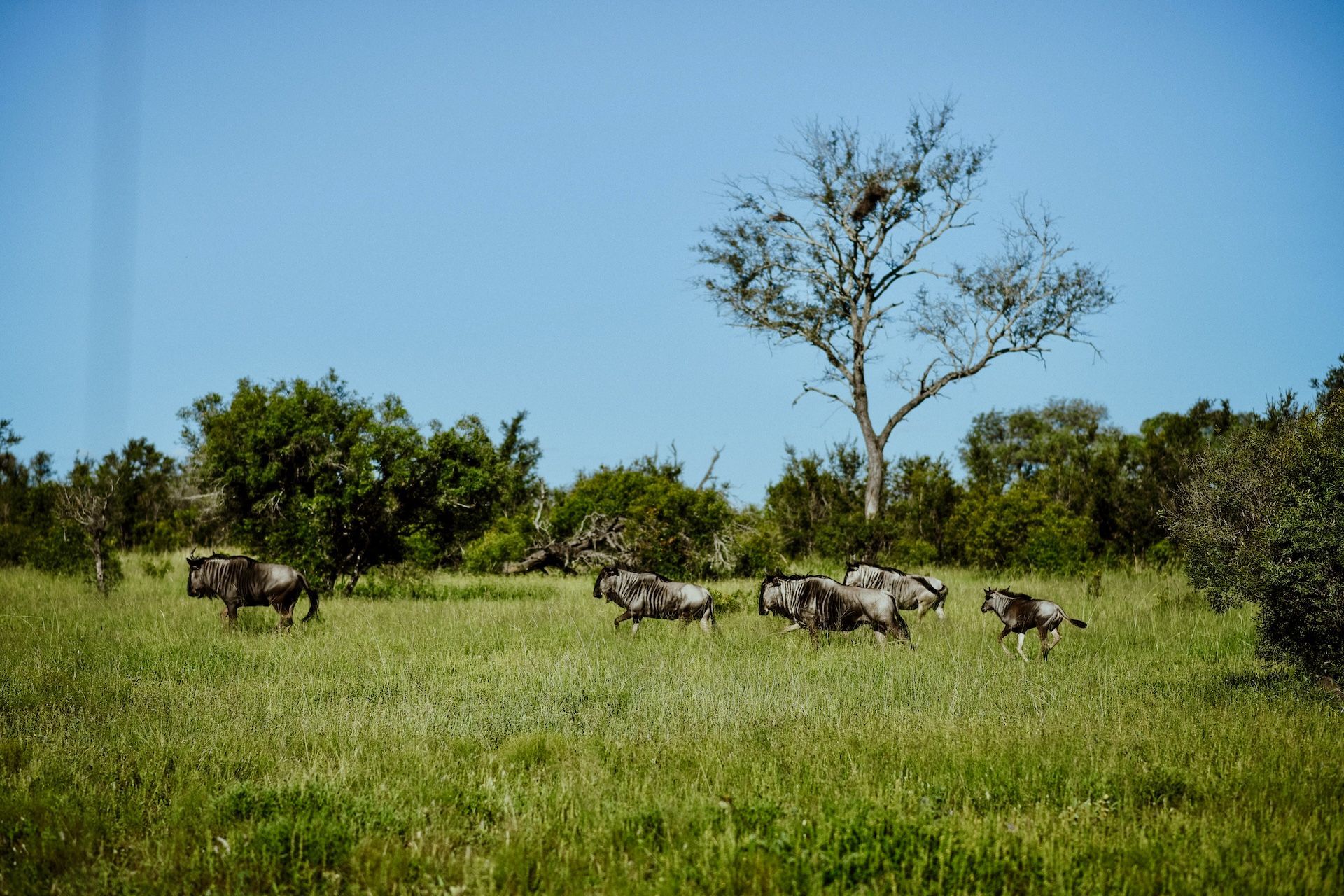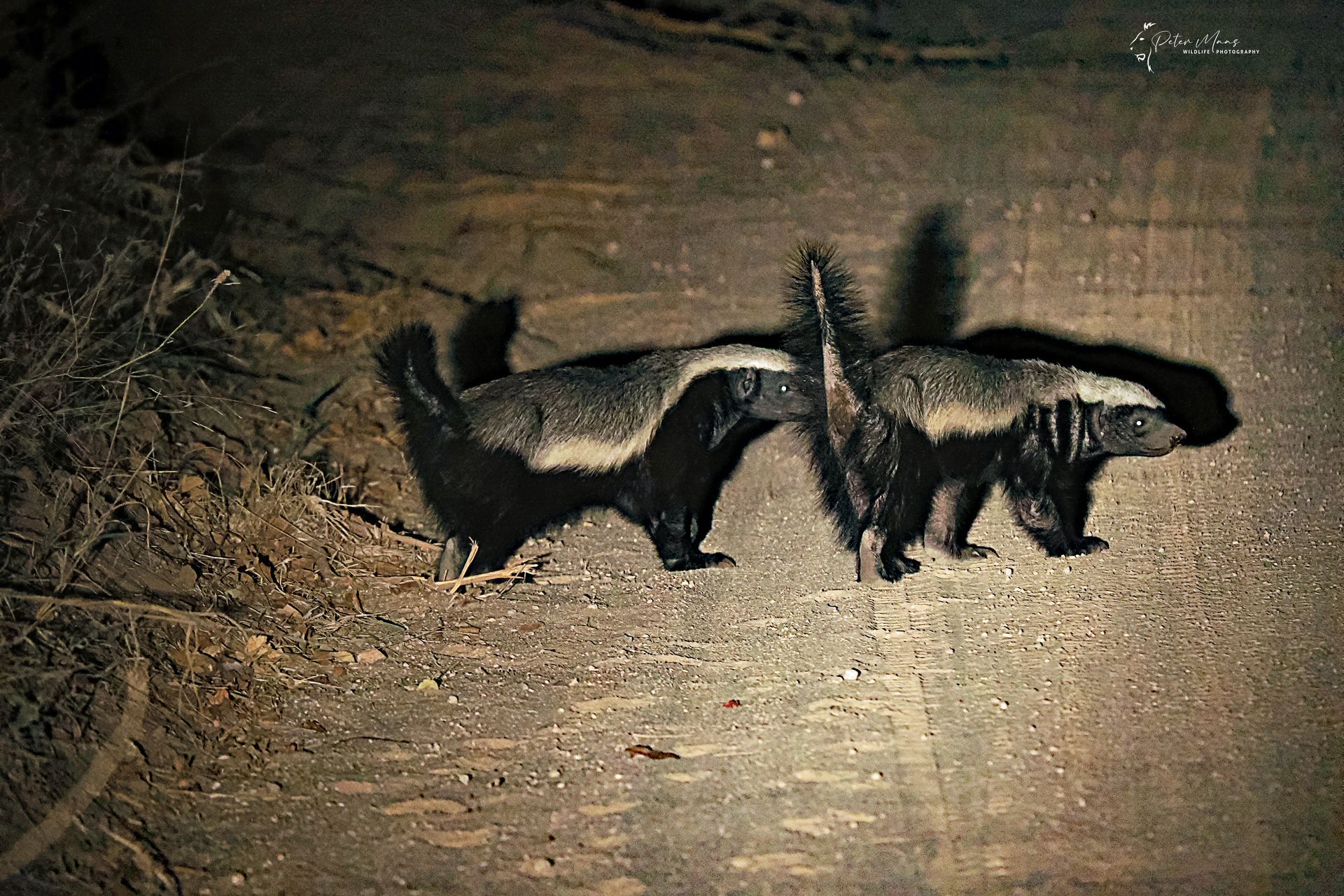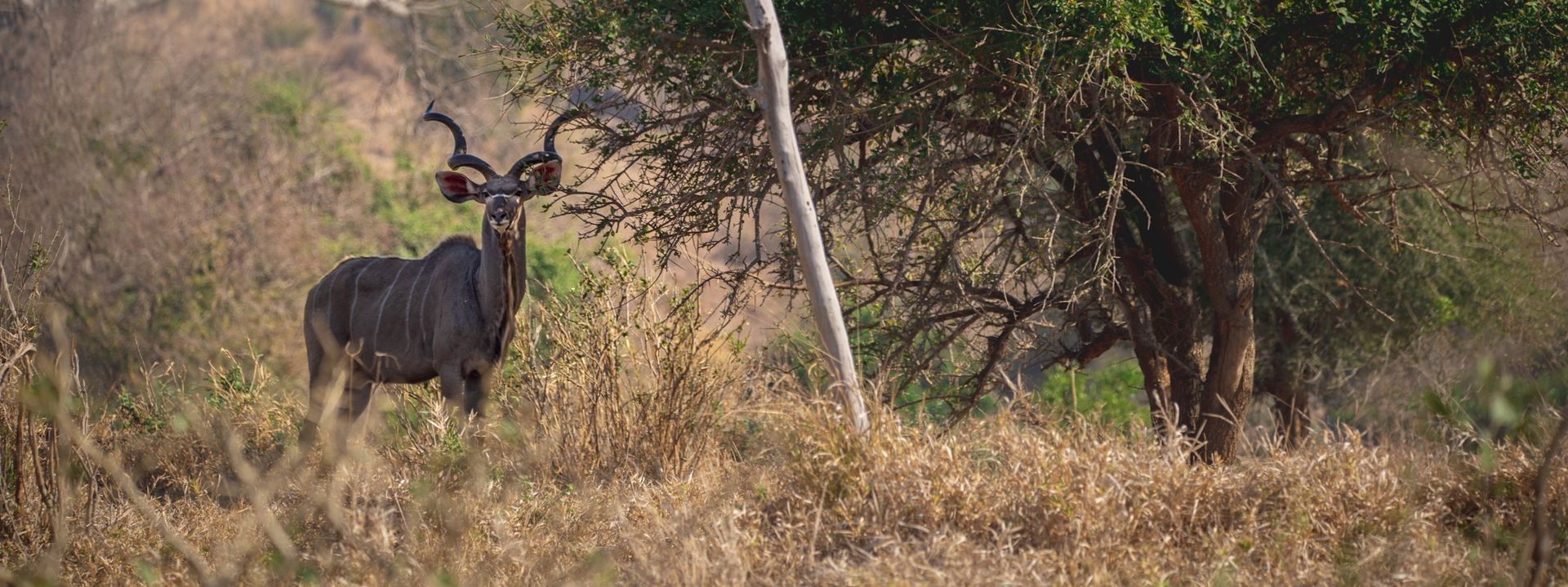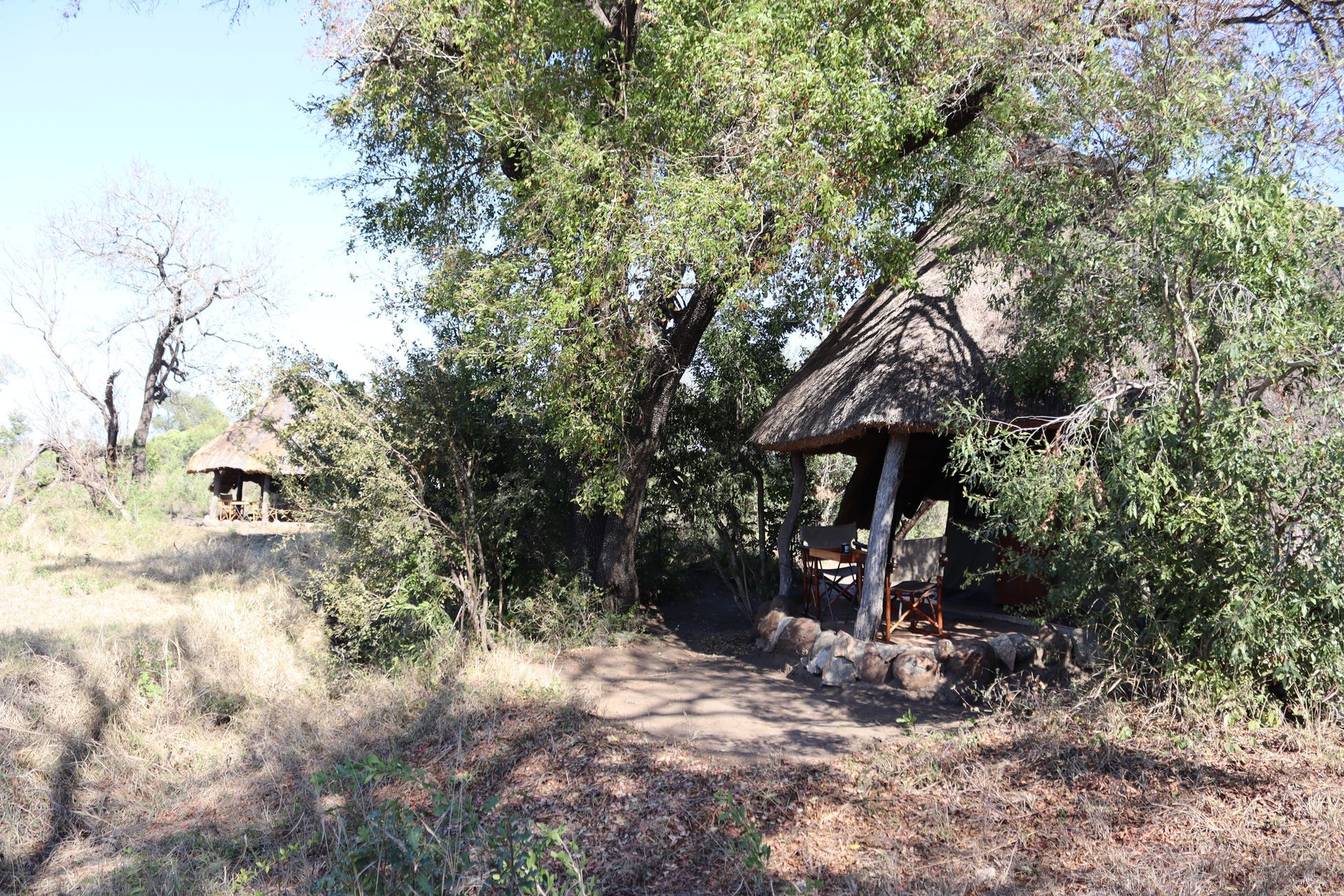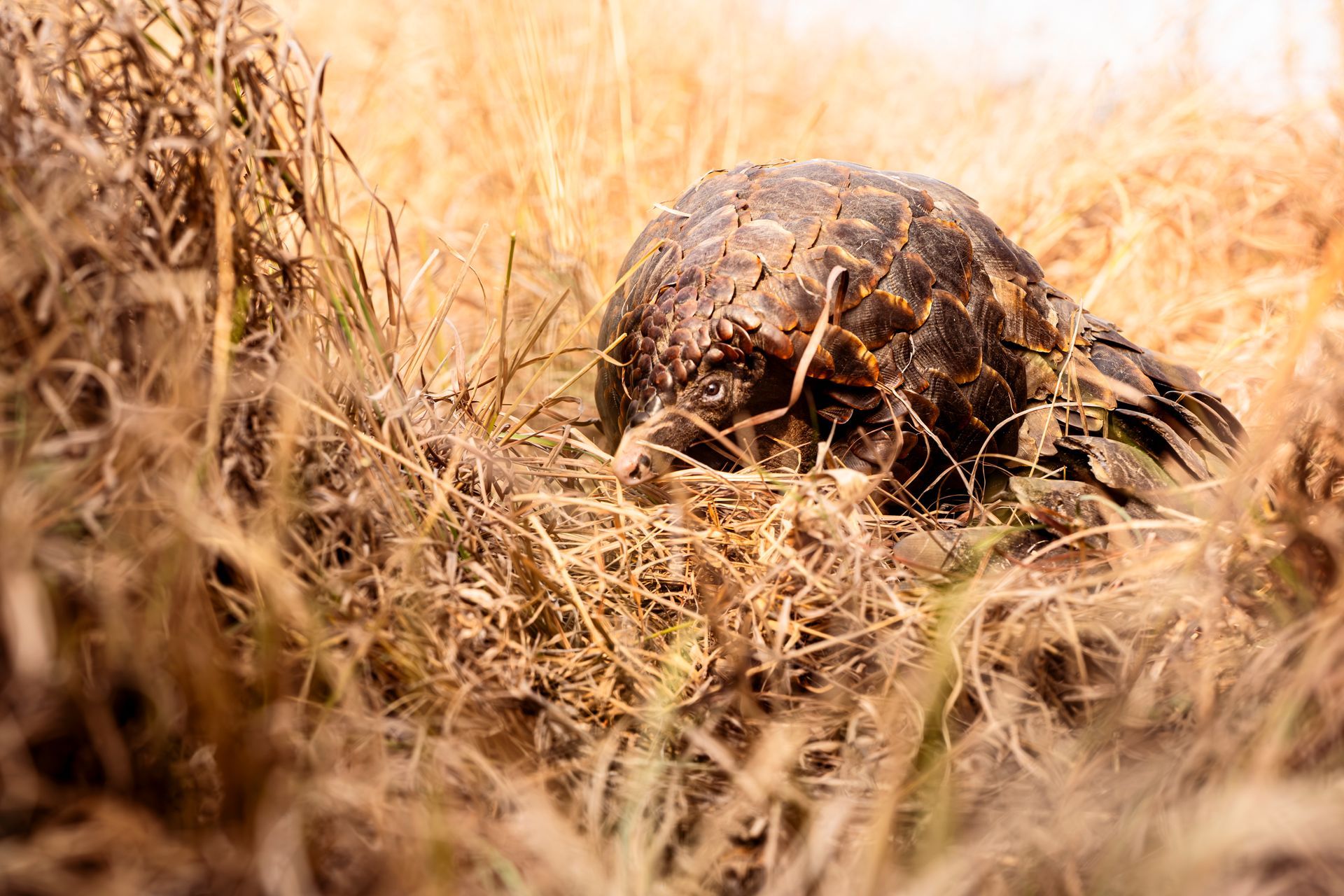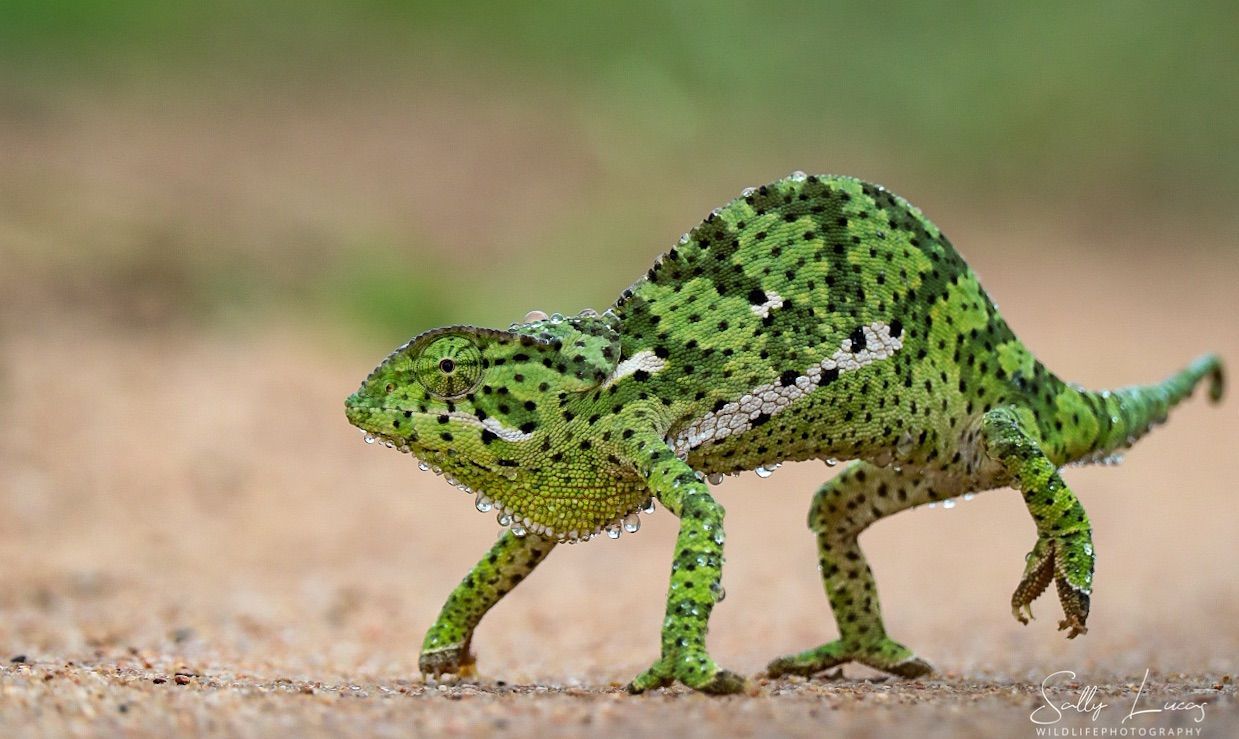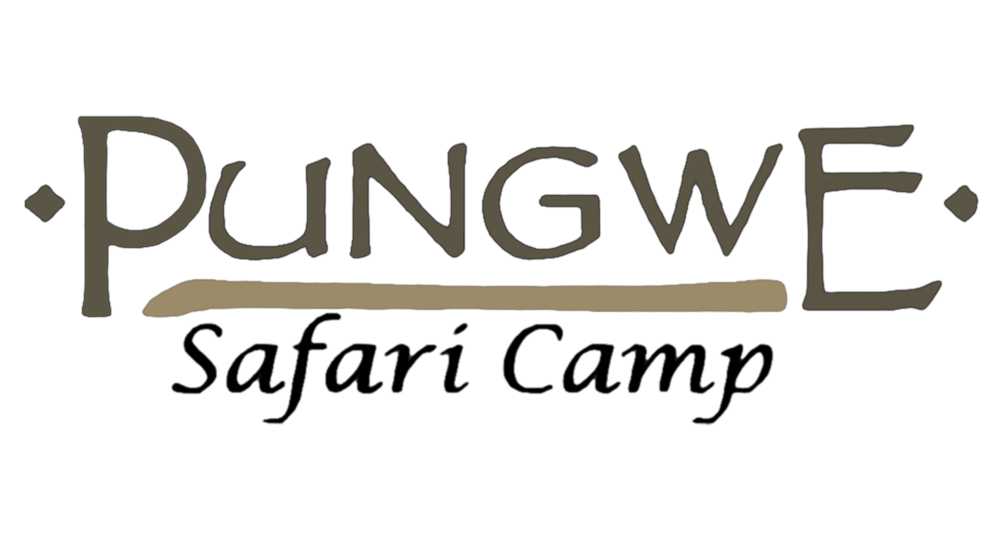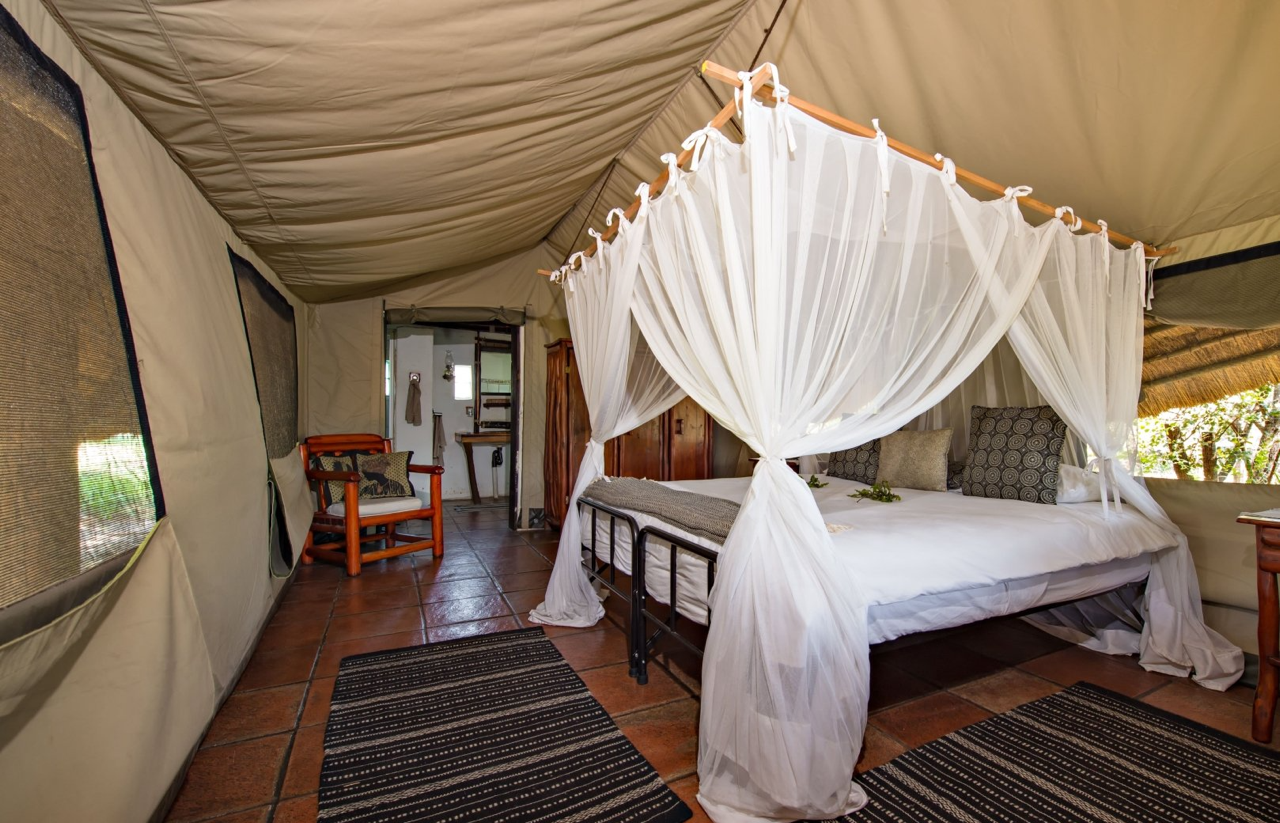The grumpy old bulls of the Manyeleti...
A celebration of our "dugga boys"
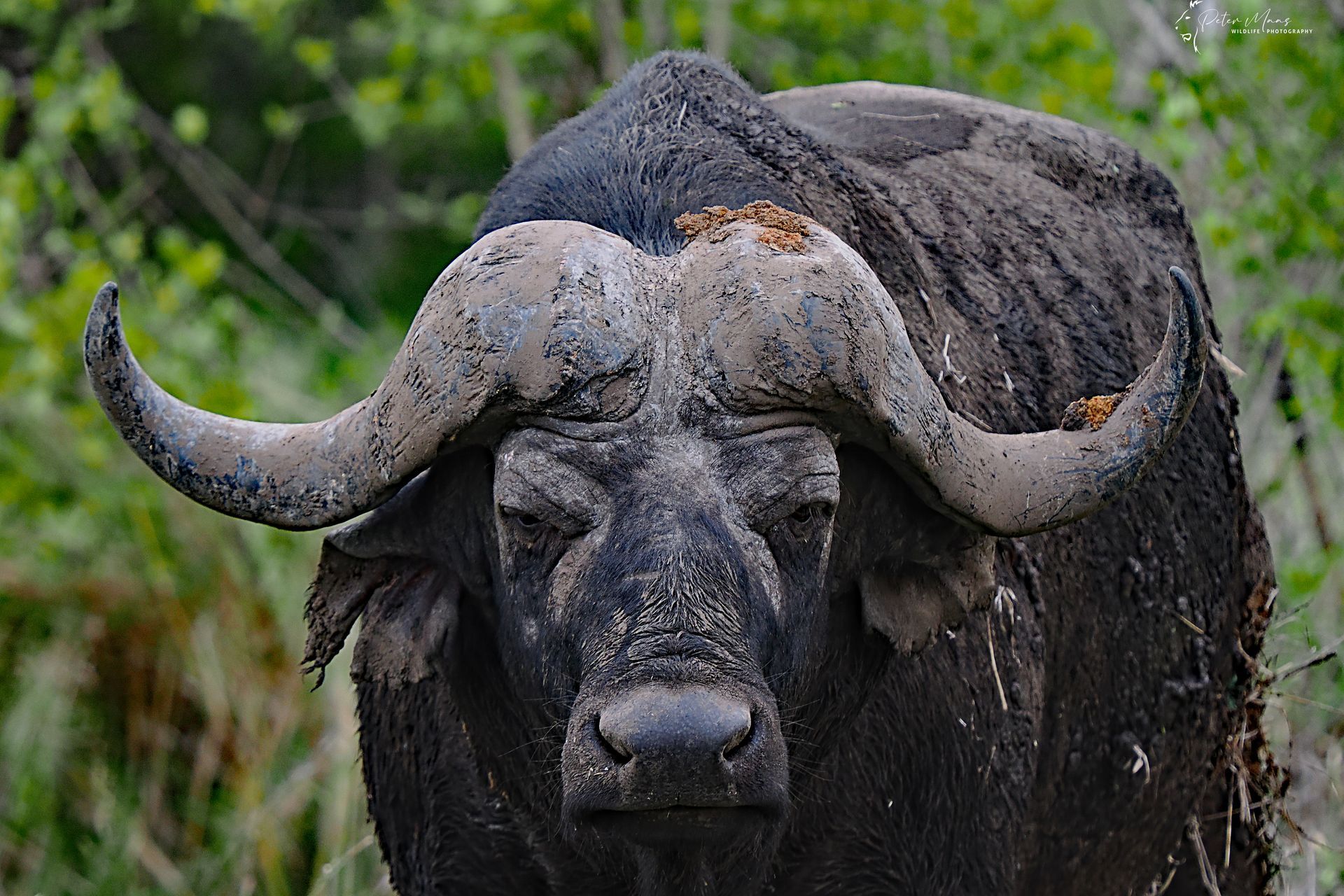
Image: Peter Maas Wildlife Photography
When it comes to the Cape buffalo, Pungwe is blessed to be literally surrounded by them, with regular sightings of huge herds of these legendary Big Five members. Possibly the most underrated of this famous grouping of African mammals, the buffalo is also the most unpredictable and temperamental, especially in the case of the old, mud-covered bulls we refer to as "dugga boys".
The word dugga comes from the Shona word for mud which is apt because these old bulls are usually covered in it, spending their days wallowing as much as they can, loving the protection it offers from biting insects and the African sun. You'll often see groups of dugga boys together, apart from the main herd, sharing mud pools.
The largest and most widespread of the four buffalo sub-species found in Africa, the Cape buffalo is found throughout East and Southern Africa, they congregate in huge herds that can often exceed 1000 animals. Renowned for their unpredictability and ill temper, they spend most of their days eating mainly grass, although they do browse on the odd occasion.
Distinguished from buffalo cows by their large horns which meet in the middle of their foreheads in a solid, helmet-like structure known as a boss, the life of a bull is all about establishing dominance and sparring with other bulls. When they get too old to compete with the younger, stronger bulls they move away from the main herd and either opt for a solitary existence or team up with two or three other old bulls to form dugga boy groups.
Their eyesight isn't great, and their hearing isn't fabulous either, but their sense of smell is exceptionally well developed. They love water and are great swimmers but are more often seen wallowing in the shallows to cool off and loving the mud along the edges of waterholes and dams, accompanied invariably by red-billed and occasionally yellow-billed oxpeckers. These noisy birds are on parasite duty, keeping the number of ticks and other pesky biting insects to a minimum. You'll also see egrets moving in and around buffalo herds and dugga boy groups, feeding on insects and other creatures disturbed as they graze.
Buffalos play a critical role in the ecology of African wilderness areas like the Manyeleti as they help to maintain grasslands by turning the sod as herds move through an area and through their grazing habits. Buffalo area food source for lions and hyenas. In spite of their fearsome reputation, they are revered by many African cultures for their strength and resilience.
Dugga boys may be past their prime, but they are still a force to be reckoned with and will readily attack predators like lion and hyena and will randomly charge any perceived threat, heads down and horns at the ready. Weighing in at as much as 850kg with a shoulder height of up to 1,6m and a top speed of 50km an hour, this is an adversary you don't want to be on the receiving end of.
So, when you next come to visit us at Pungwe and we come across a few of these "grumpy old men" you'll have a with new respect for them, even when they look at you as Robert Ruark said, “as if you owe them money”!
